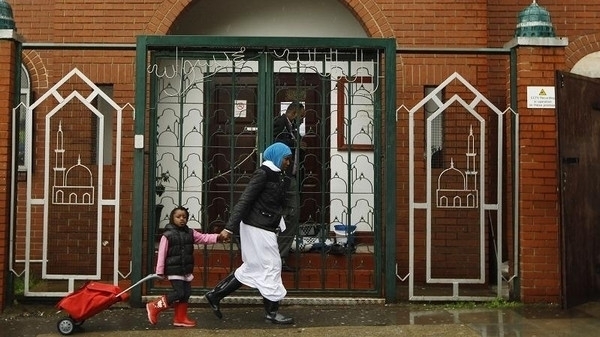With an ever-increasing stream of British Muslim men trickling into Syria for jihad, British police have begun a new campaign to stem the flow of Islamic extremism – to reach would-be jihadists through their loved ones.
British counter-terrorism officials have started a national campaign targeting women, which is aimed at raising awareness of the risks of visiting Syria, even for those who just wish to assist with humanitarian projects.
The initiative – an unprecedented move by British authorities – was prompted by a surge in the number of Britons caught travelling or returning from war-wracked Syria.
Last year, 25 arrests were made, while the number has now climbed to 40 for the first three months of 2014, Agence France-Presse reported.
Several of those arrested were subsequently charged with terrorism-related offences.
The International Centre for the Study of Radicalisation at King’s College London estimates that between 200 and 366 British nationals have gone to Syria to participate in the conflict.
For their campaign, police will hold meetings across Britain on Thursday with women from different community groups, charity workers and government officials involved in preventing extremism.
Anti-terror hotline
A leaflet has been prepared outlining the risks of travelling to Syria, which will be handed out at airports and ports.
Printed on the leaflets is the UK’s anti-terrorist hotline number, which relatives can call if they believe family members plan on travelling to Syria.
“We are increasingly concerned about the numbers of young people who have or are intending to travel to Syria to join the conflict,” Deputy Assistant Commissioner Helen Ball said.
“We want to ensure that people, particularly women, who are concerned about their loved ones are given enough information about what they can do to prevent this from happening,” she added.
She added: “This is not about criminalizing people, it is about preventing tragedies.”
However, not all support the initiative.
Criminalizing campaign
Amina Deghayes, the aunt of British teenager Abdullah Degahyes, who died earlier this month after leaving Britain in January, said that the campaign would “criminalize” people.
“If the steps are to speak to the guys before they leave, I think people already have – they do not need the Government to tell them that,” Ms Deghayes added, according to The Independent.
Others have also expressed misgivings.
Mussurut Zia, from the Muslim Women’s Network UK, told the BBC that there was a “real mistrust” of the police in some communities which could lead to a lack of engagement with the campaign.
“There’s a real fear of people become marked, also there is mistrust where the police are concerned,” she said.
Women have a “unique position” in being able to influence loved ones, but should know how to argue their cases against jihadist conflict in Syria, Sara Khan, director of the Islamic women's group Inspire, said in an interview with the UK’s Channel 4.
“They need to be equipped with the necessary knowledge including theological counter-narratives to counter the arguments extremists use in order to lure vulnerable individuals to their cause,” she said.
......


